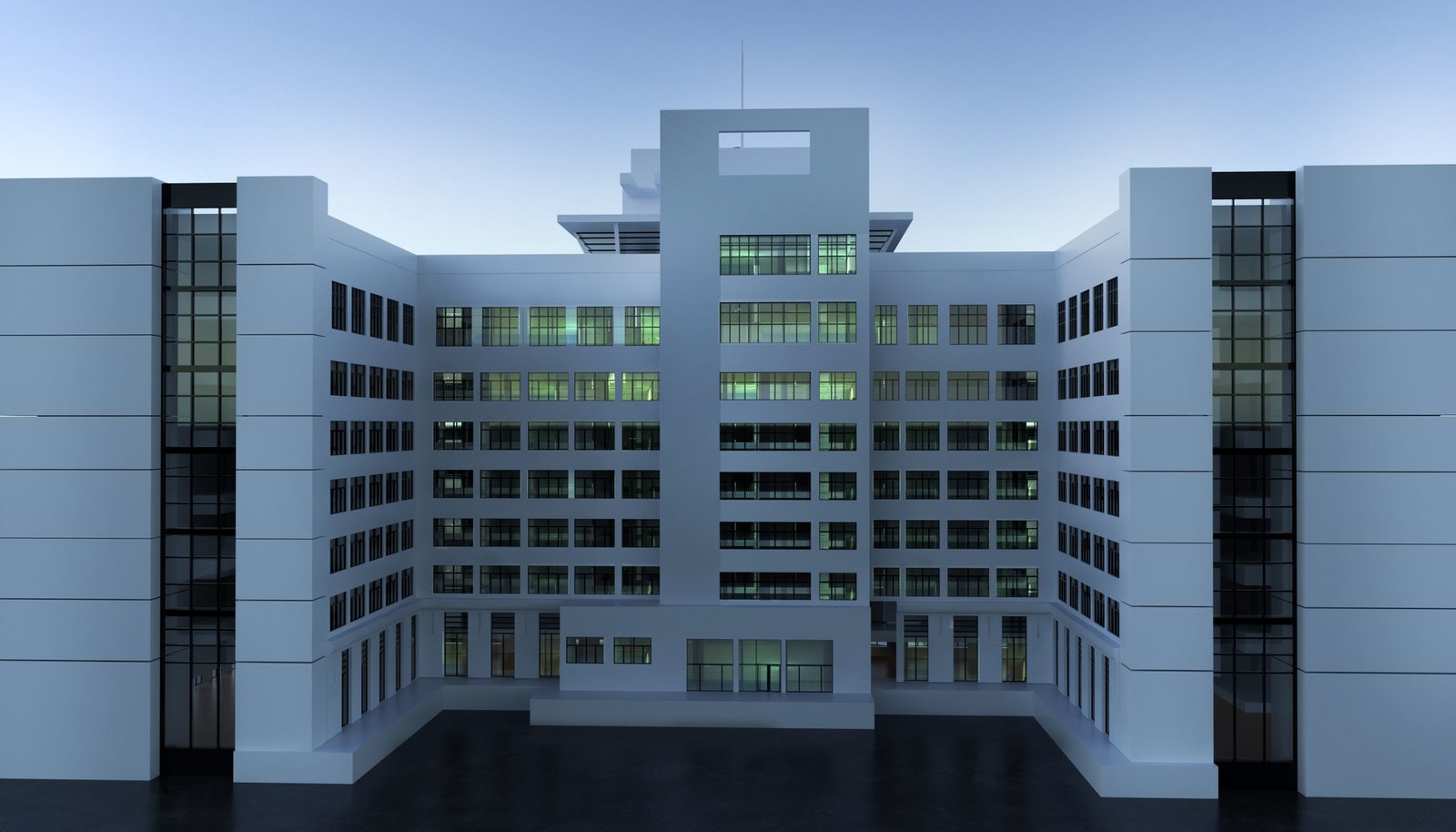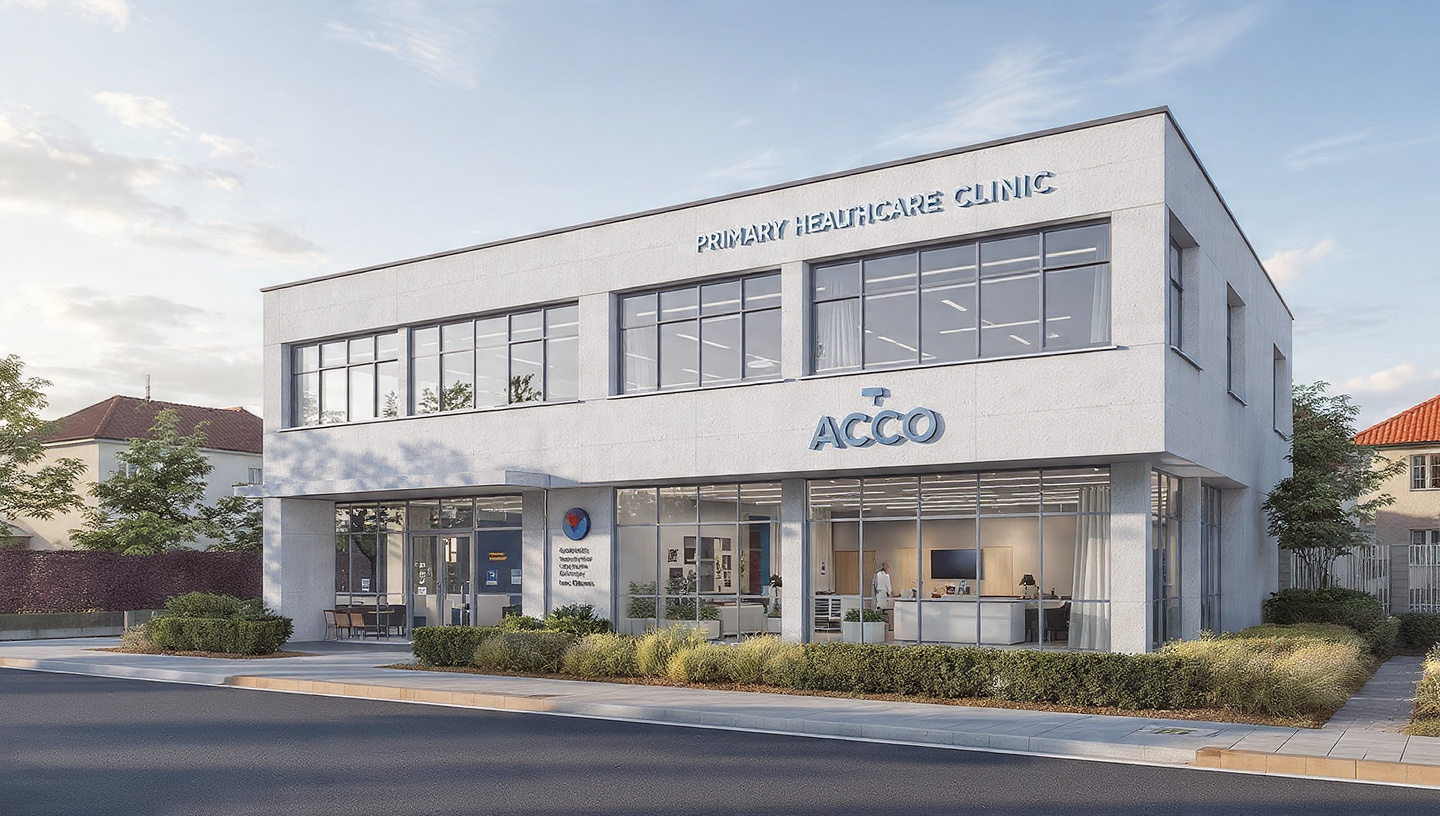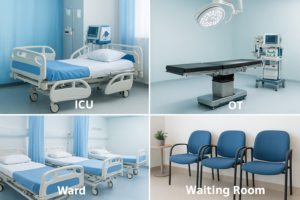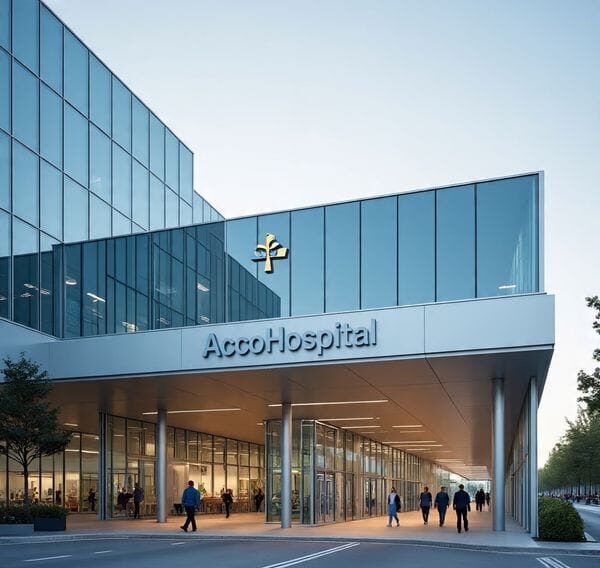
ACCO Leading Design Firm for General Hospitals and Commercial Complexes: Elevating Architecture
| Main Topics | Subtopics |
|---|---|
| H1: ACCO Leading Design Firm for General Hospitals and Commercial Complexes: Elevating Architecture | |
| H2: Introduction to ACCO’s Architectural Excellence | – Overview of ACCO’s Mission and Vision in Architecture |
| – ACCO’s Role in Shaping Modern Healthcare and Commercial Spaces | |
| – The Firm’s Commitment to Sustainable and Innovative Design | |
| H2: ACCO’s Specialization in General Hospital Design | – Core Principles of Hospital Architecture |
| – Importance of Functionality, Safety, and Patient-Centric Design | |
| – Integrating Technology and Flexibility in Healthcare Facilities | |
| – Case Studies: Successful Hospital Projects by ACCO | |
| H2: ACCO’s Impact on Commercial Complex Design | – Redefining Commercial Spaces: Blending Aesthetics with Efficiency |
| – Focus on Adaptive, Multi-Use, and Scalable Design Elements | |
| – Case Studies: ACCO’s Key Commercial Complex Projects | |
| H2: Sustainability in ACCO’s Designs | – Green Building Certifications: LEED and Beyond |
| – Energy Efficiency and Environmental Impact of ACCO’s Projects | |
| – The Role of Renewable Materials and Resources | |
| – ACCO’s Vision for a Greener Future in Architecture | |
| H2: Technological Integration in ACCO’s Designs | – Smart Hospitals: Incorporating IoT and AI |
| – Automation and Smart Building Technology in Commercial Complexes | |
| – How ACCO Stays Ahead of Technological Trends in Architecture | |
| H2: Design Philosophy: Merging Form and Functionality | – ACCO’s Approach to User-Centric and Functional Designs |
| – Architectural Design that Reflects the Identity of the Client | |
| – Balancing Beauty, Efficiency, and Durability | |
| H2: ACCO’s Collaborative Approach | – Partnering with Clients: Customizing Design to Specific Needs |
| – Multidisciplinary Teams: Engineers, Architects, Designers | |
| – How ACCO Ensures Seamless Project Execution | |
| H2: Innovations in Healthcare Architecture | – Evidence-Based Design (EBD) in Hospitals |
| – Healing Environments: Promoting Wellness through Architecture | |
| – Future of Hospital Architecture: Anticipating New Healthcare Trends | |
| H2: Commercial Complex Trends Led by ACCO | – Evolution of Commercial Spaces Post-Pandemic |
| – Co-working Spaces and Flexible Office Layouts | |
| – ACCO’s Approach to Urban Integration and Connectivity | |
| H2: ACCO’s Awards and Recognitions | – Prestigious Awards Won by ACCO in Hospital and Commercial Design |
| – Industry Certifications and Memberships | |
| – Client Testimonials and Industry Endorsements | |
| H2: Challenges and Solutions in Hospital Design | – Managing Space Constraints and Expanding Capacity |
| – Addressing Infection Control and Hospital Safety | |
| – Solutions to Enhancing Patient Experience Through Design | |
| H2: ACCO’s Contribution to Community and Urban Development | – Designing for Community Impact and Social Responsibility |
| – ACCO’s Role in Urban Revitalization Projects | |
| – How ACCO Supports Local Economies and Job Creation | |
| H2: Future-Proofing Architecture: ACCO’s Vision for the Future | – Preparing for Future Healthcare and Commercial Demands |
| – ACCO’s Long-Term Vision for Architecture in the 21st Century | |
| – Predicting Architectural Trends and Innovations | |
| H2: Client-Centered Design Process | – ACCO’s Approach to Understanding Client Needs and Expectations |
| – How ACCO Ensures High-Quality Results through Detailed Planning | |
| – Case Study: Successful Client Collaborations and Outcomes | |
| H2: FAQ Section | – What sets ACCO apart from other architectural firms? |
| – How does ACCO incorporate sustainability into its designs? | |
| – What are ACCO’s key considerations when designing a hospital? | |
| – What challenges does ACCO face in commercial complex design? | |
| – How does ACCO integrate technology into their projects? | |
| – What types of projects does ACCO specialize in? | |
| H2: Conclusion | – ACCO’s Enduring Legacy in Architecture |
| – Final Thoughts on ACCO’s Innovative Approach to Design |
Long-Form Article: ACCO Leading Design Firm for General Hospitals and Commercial Complexes: Elevating Architecture
H1: ACCO Leading Design Firm for General Hospitals and Commercial Complexes: Elevating Architecture
In the world of modern architecture, ACCO stands as a beacon of innovation, sustainability, and precision. With an impressive portfolio that spans both healthcare and commercial sectors, ACCO’s designs are not only functional but also transformative. This firm is at the forefront of architectural innovation, shaping the future of general hospitals and commercial complexes. Through its pioneering work, ACCO ensures that spaces are not just places to occupy, but environments that inspire, heal, and drive efficiency.
H2: Introduction to ACCO’s Architectural Excellence
ACCO’s mission is clear: to revolutionize architecture with thoughtful, sustainable, and client-focused designs. Founded with the belief that architecture can significantly impact lives, ACCO has grown into a leader in designing spaces that cater to both healthcare needs and commercial efficiency. ACCO’s visionary leadership has a keen focus on not only meeting but exceeding client expectations. The firm’s goal is to create environments that elevate the human experience, whether it be through the serenity of a hospital ward or the dynamic energy of a commercial hub.
Driven by a commitment to innovation, ACCO incorporates cutting-edge technologies and sustainable practices into every project. They are known for their meticulous attention to detail, ensuring that their designs reflect both the personality of the client and the demands of the environment. From hospitals that prioritize patient recovery to commercial complexes that foster business growth, ACCO’s architecture is redefining the standards of modern design.
H2: ACCO’s Specialization in General Hospital Design
Designing hospitals is no small feat. These spaces must balance functionality, safety, and comfort, while adhering to strict regulatory standards. ACCO has mastered the art of healthcare architecture, with a focus on creating environments that enhance patient care, streamline operations, and ensure long-term adaptability.
One of the core principles behind ACCO’s hospital designs is patient-centered care. The firm recognizes that a hospital’s layout can significantly impact patient outcomes, which is why they prioritize designs that reduce stress and promote healing. ACCO also emphasizes flexibility in its hospital projects. As healthcare needs evolve, so too must the spaces in which care is delivered. The firm ensures that its designs can adapt to future changes in medical technology and patient care methods.
ACCO’s hospital designs are not only functional but also aesthetically pleasing. They integrate natural light, calming colors, and nature-inspired elements to create a serene environment conducive to healing. The firm has a proven track record of designing hospitals that are both state-of-the-art and inviting, setting a new standard for healthcare facilities.
H2: ACCO’s Impact on Commercial Complex Design
Commercial complexes are more than just buildings; they are the engines of urban life and economic growth. ACCO’s approach to commercial architecture is rooted in creating versatile, efficient spaces that adapt to the changing needs of businesses. Their designs prioritize functionality without sacrificing aesthetic appeal, ensuring that commercial complexes serve as both productive workspaces and attractive landmarks.
ACCO’s commercial projects are characterized by their adaptability and scalability. Whether designing a corporate headquarters or a mixed-use complex, the firm ensures that the space can accommodate future growth and evolving business models. Flexibility is a key design principle, as modern businesses require environments that can shift to meet new demands.
The firm’s commercial designs also place a strong emphasis on community and connectivity. ACCO integrates elements such as public spaces, green areas, and pedestrian-friendly zones into their complexes, fostering a sense of community and enhancing urban connectivity. These elements not only add value to the property but also contribute to the well-being of those who work and visit these spaces.
H2: Sustainability in ACCO’s Designs
Sustainability is at the core of ACCO’s design philosophy. The firm is committed to reducing the environmental impact of its projects through innovative design solutions and the use of sustainable materials. ACCO strives to achieve high levels of energy efficiency in all its buildings, often exceeding industry standards for green building certifications such as LEED (Leadership in Energy and Environmental Design).
ACCO’s sustainable designs are not just about meeting regulatory requirements; they reflect a genuine commitment to environmental stewardship. The firm uses renewable materials, incorporates energy-saving technologies, and prioritizes designs that reduce water and energy consumption. ACCO’s approach to sustainability is holistic, ensuring that their buildings are environmentally friendly throughout their entire lifecycle—from construction to operation.
Moreover, ACCO is deeply invested in the future of sustainable architecture. The firm actively seeks out new materials and technologies that can further reduce the carbon footprint of their projects. By prioritizing sustainability, ACCO is not only contributing to a greener planet but also creating spaces that are healthier and more cost-effective for their clients.
H2: Technological Integration in ACCO’s Designs
In today’s world, technology is an integral part of architectural design. ACCO is at the forefront of technological integration, utilizing the latest advancements to enhance the functionality and efficiency of their buildings. Whether it’s a hospital or a commercial complex, ACCO ensures that technology plays a key role in improving the user experience.
In healthcare architecture, ACCO incorporates cutting-edge technologies such as IoT (Internet of Things) devices and AI (Artificial Intelligence) to create smart hospitals. These technologies allow for better patient monitoring, improved communication systems, and enhanced operational efficiency. ACCO’s smart hospitals are designed to be adaptable to future technological advancements, ensuring that they remain state-of-the-art for years to come.
In the commercial sector, ACCO integrates automation and smart building technologies to optimize energy use, improve security, and enhance overall building management. These systems provide real-time data that can be used to make informed decisions about building operations, reducing costs and improving efficiency. ACCO’s use of technology ensures that their buildings are not only innovative but also sustainable and cost-effective.




